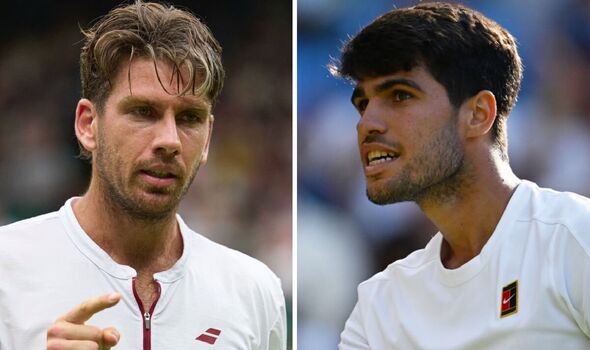Didier Drogba, one of Mourinho’s favourite sons, was 26 and had fought his way
to the top when he joined Chelsea in 2004. Named Diego after Maradona, Costa
is also a relatively late bloomer who had barely played any organised
football in his native Brazil before the age of 16.
He started his career at modest Sao Paulo side Barcelona Esportivo Capela,
where he was spotted by agent Jorge Mendes, who also represents Mourinho,
and moved to Portuguese club SC Braga in 2006.
“In Brazil all fathers dream that their kids become footballers,” said Costa.
“My family love football and my dad called me Diego because of Maradona. My
dad worked a lot in order to give me everything I needed. We lived well
because of him. Now my father’s dream has come true. And mine, which was to
give them a better life.
“I learnt football on the street, where you have to be on the ball or you get
hit. I couldn’t play in a different team to my brother because if we did,
we’d just be fighting all the time. I couldn’t lose.
“To be able to play in the streets you have to be very alert, because there
are no rules, everything is permitted. So you have to be ready. It’s hard,
but it influenced me to be able to mature and learn things, and to bear
certain things.
“On the other hand, I didn’t have the same kind of education as a normal
footballer goes through to become a professional.”
Those early experiences have not left Costa. They are why he can lose his cool
during games, such as headbutting a Viktoria Plzen player in last season’s
Europa League, and why he could battle his way through several loan spells
and serious injury.
Mourinho tries to fill his teams with warriors and also likes a sense of
devilment in his strikers, underlined by last summer’s long and ultimately
unsuccessful pursuit of Wayne Rooney. Costa fits the profile.
“I try to give everything in every game,” said Costa. “I am a player who
fights, battles, tries to win. I don’t like losing, so I give my life in
every game.”
After first signing for Atletico for £1.2m in 2007, Costa was loaned to Braga,
Celta Viga and Albacete before being sold to Real Valladolid. He returned to
Atletico in 2010, but suffered a serious knee injury 12 months later and
then joined Rayo Vallecano on loan.
“It was a very strange time when I got my injury because I was about to leave
Atletico, I got an offer to leave,” said Costa. “But the moment the injury
occurred I knew that something had to happen. I had to keep my head clear to
deal with all that. I knew I had to start from scratch and be strong. It was
a bad thing, but I took it as a good thing.”
Competition has always been fierce for Costa at Atletico. First, Diego Forlan
and Sergio Aguero stood in his way, and Costa played a supporting role to
Radamel Falcao last season before the Colombian moved to Monaco.
Stepping out of Falcao’s shadow, Costa has scored 27 La Liga goals in 22
different games and no other player in Spain, including Cristiano Ronaldo
and Lionel Messi, has been so vital to their team.
“All the moves were crucial for me,” Costa told Uefa’s Champions League
magazine. “I came from a completely different league, so I had to learn
everything – the culture, how they play, how they live in Spain. Every city
that I stayed in was a learning experience.
“I knew at the time, and always really, that Kun (Sergio Aguero) and Diego
Forlan were among the best strikers in Europe and in the world, so it was
very hard for me to play at Atletico. I needed to play and get some minutes.
Everything in life takes time. In life you have to fight and scrap every day
to try and get better.
“My life was always fighting and battling. It’s something I have inside, I
can’t change it. When I put my mind to something I don’t let it escape me.”
Asked what his team lack after their defeat at Crystal Palace, Mourinho wrote
“balls” on to a piece of paper.
Costa has no problem with the expectation this season’s goals have placed on
his shoulders and believes it brings out the best in him.
“I believe it’s very different if you’re playing for a big team as opposed to
a small team,” said Costa. “In big teams you get more chances and the
confidence the team, and the coach, has in me gives me a lot as well. People
watch you, look at you and tell you that they need you. That kind of
responsibility is good for me, it makes me feel comfortable.”
Mourinho will hope Costa feels just as comfortable at Chelsea, but not against
them.




